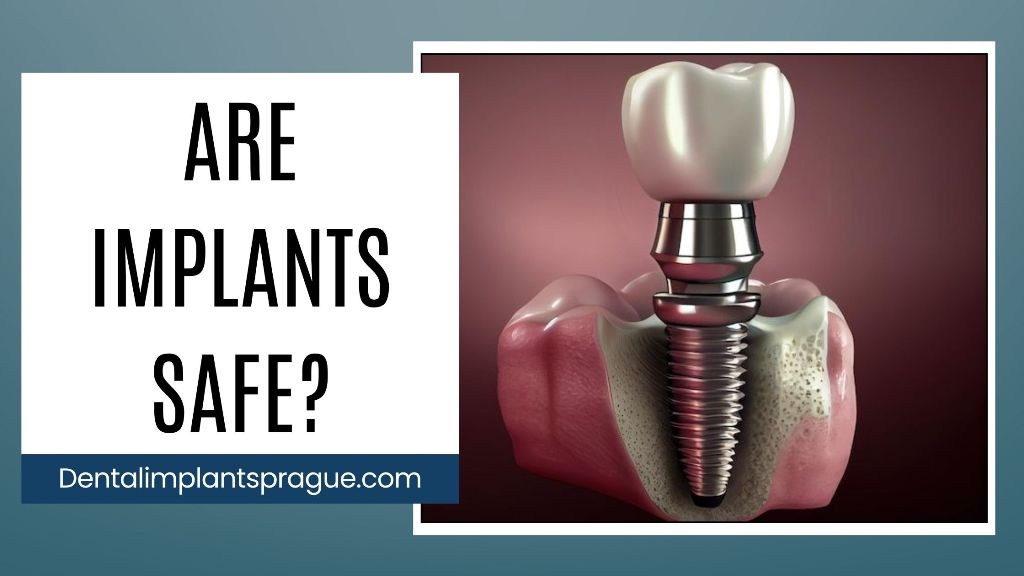If you’ve ever wondered how dental implants work, you’re certainly not alone. Many people searching for a long-term solution to missing teeth often find the idea of dental implants both intriguing and slightly confusing. As someone who writes professionally for dentalimplantsprague.com, I often get asked, “What actually happens beneath the surface when someone gets a dental implant?” Let me walk you through this with clear, professional, and friendly insights.
What Is a Dental Implant?

A dental implant is a small titanium post that acts as an artificial tooth root. It’s surgically placed into your jawbone to provide a stable foundation for a crown, bridge, or even a full set of replacement teeth. Unlike dentures that rest on the gums, implants are fixed and integrated into the bone, giving a natural look and feel.
Think of it this way: just as the roots of natural teeth anchor them into the jaw, dental implants serve the same purpose — except they’re made of biocompatible materials, most often titanium.
The Purpose of a Dental Implant

The purpose of a dental implant goes beyond simply filling a gap. Yes, it restores your smile, but it also helps maintain jawbone health, prevents the shifting of nearby teeth, and supports facial structure. When a tooth is lost, the bone in that area can start to weaken over time. Placing an implant helps stimulate the bone — much like a natural tooth root — and keeps it strong.
This is one major reason many dentists recommend implants over other solutions for missing teeth.
Step-by-Step: How Dental Implants Work

Let’s simplify the process into three main stages:
1. Consultation and Planning
Everything begins with a detailed consultation. Your dentist examines your mouth, reviews X-rays or 3D scans, and checks your jawbone health. Not everyone is a candidate right away — but even if you’ve lost bone mass, there are solutions like bone grafts to help prepare the site.
Here’s where your customized treatment plan is mapped out.
2. Placement of the Implant
Once the plan is ready, the actual procedure to place the dental implant is performed. The dentist makes a small incision in the gum to reach the jawbone and carefully inserts the implant post.
It might sound intense, but local anesthesia and modern techniques make it surprisingly comfortable for most patients. Many even return to work the next day.
After the implant is placed, healing begins — and this is where the real magic happens.
3. Osseointegration and Restoration
During healing, a process called osseointegration takes place. This means the implant naturally fuses with the jawbone. It usually takes a few months, and it’s the reason dental implants are so stable and long-lasting.
Once healed, a connector (called an abutment) is attached to the implant, and finally, a custom-made crown is placed on top. The result? A replacement tooth that looks, feels, and functions like the real thing.
Why Implants Are Often Worth It

You might ask — aren’t there easier or cheaper options? Certainly, dentures and bridges are available, and they work well for many. But dental implants offer several clear advantages:
- Longevity: With proper care, implants can last a lifetime.
- Stability: No slipping or clicking, unlike dentures.
- Bone Health: They help maintain bone structure and prevent shrinkage.
- Aesthetics: They closely mimic natural teeth in appearance and function.
For anyone who values durability and comfort, dental implants often become the go-to recommendation.
Are Implants Safe?

Absolutely. The materials used in dental implants are chosen specifically for their compatibility with the human body. Titanium, in particular, has been used in medical applications for decades. Success rates for implants are very high — around 95% in most cases — especially when placed by skilled professionals.
Of course, like any procedure, there are risks, but with good oral hygiene and regular check-ups, most patients enjoy smooth recoveries and lasting results.
Common Myths About Dental Implants

Let’s clear up a few misconceptions:
- Myth: They’re only for older adults.
Truth: Implants are suitable for adults of almost any age who have healthy gums and adequate bone. - Myth: The procedure is painful.
Truth: Most patients report minimal discomfort, similar to having a tooth pulled. - Myth: They require lots of maintenance.
Truth: Caring for dental implants is almost identical to caring for natural teeth — brushing, flossing, and routine cleanings.
Interesting Fact: Bone Likes Titanium

Did you know the body doesn’t reject titanium the way it might with other metals? That’s one reason dental implants are so successful. The bone naturally grows around the implant, holding it securely in place without needing any adhesives or support from other teeth.
Choosing the Right Clinic Matters

The outcome of your implant procedure depends largely on the experience of the dental team and the quality of care provided. It’s not just about placing a post — it’s about precise planning, surgical skill, and creating a crown that blends seamlessly with your natural teeth.
That’s exactly what we focus on at dentalimplantsprague.com. Our clinic offers a balance of expert care, advanced technology, and patient comfort — making the implant process smooth and predictable.
Final Thoughts
If you’ve been considering implants and wondering exactly how dental implants work, I hope this guide has made things a bit clearer. The process isn’t as mysterious or complicated as it might seem at first. In fact, it’s one of the most well-established and reliable procedures in modern dentistry.
Whether you’re missing a single tooth or looking for a full-mouth solution, dental implants can restore confidence, function, and health to your smile. If you’re exploring options or just have more questions, visit us at dentalimplantsprague.com. We’re here to help you make informed choices and feel confident every step of the way.

